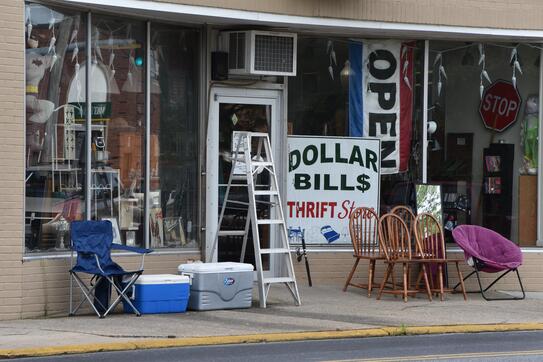Adapted from “Macroeconomic Conditions When Young Shape Job Preferences for Life” by Stephan Meier of Columbia Business School, Maria Cotofan of King's College London, Lea Cassar of the University of Regensburg, and Robert Dur of Erasmus University Rotterdam.
Key Takeaways
- Macroeconomic conditions experienced between 18 and 25 significantly affect workers' career choices and job preferences through retirement age.
- The experience of poor or favorable macroeconomic conditions as a young adult can influence how multi-generational workers assess the non-monetary aspects of their work, such as the perceived meaning of their job and the relative importance of salary.
- Youthful experiences of macroeconomic change impact how workers perceive the value of working for mission-driven not-for-profit and for-profit employers and their satisfaction with and loyalty to these employers.
The paper from Columbia Business School, “Macroeconomic Conditions When Young Shape Job Preferences For Life” examines how the experience of macroeconomic conditions as a young adult influences multi-generational job preferences.
The paper was co-authored by Maria Cotofan of King's College London; Lea Cassar of The University of Regensburg, CESifo, and CEPR; Robert Dur of Erasmus University Rotterdam, Tinbergen Institute, CESifo, and IZA, and Stephan Meier of Columbia Business School, CESifo, and IZA.
Research
In psychology, the years between 18 and 25 are often considered the impressionable years for young adults, with the emergence of new attitudes, beliefs, and ideas about the world that may linger for a lifetime. Many young people prepare to enter or have just entered the workforce during the same period.
Recent research suggests that individuals aged 18 to 25 define their personalities and preferences, the macroeconomic context within which they consider and launch their first careers has a powerful, enduring impact on how they perceive the value of income and the pursuit of meaning through employment.
Using this context to analyze job choice motivation is novel and data-driven. Analysis of the General Social Survey (GSS) between 1973 and 2014, covering nearly 20,000 workers in the United States, revealed significant evidence that macroeconomic conditions during early young adulthood have a powerful impact on future career choices, even across diverse educational and income levels.
Data analysis shows that young people who experienced a recession tended to prioritize income over a sense of meaning or purpose in their work — for the rest of their lives. In contrast, those who experienced an economic boom took the inverse approach to career selection. Research showed that macroeconomic conditions later in life mattered much less, if at all, to how workers prioritized job income versus their perceived sense of meaning derived from their job.
This difference in emphasis between how workers choose careers or assess the value of a new job may lead to unique challenges for employers.
Regardless of whether they are in their early forties or younger, workers who've experienced economic downturns tend to prioritize income when choosing careers. However, their financial needs vary based on age-related responsibilities. Nonprofits prone to recruiting young, purpose-driven employees may find recruitment challenging after economic uncertainty. At the same time, for-profit firms may only attract or retain older professionals if they provide meaningful work.
Conclusion
Workers’ preferences are evolving, influenced by the gig economy, remote work, and economic fluctuations. This requires employers to adapt their work design and management strategies. Our research revealed that workers prioritize job meaning over income if they grew up in prosperous times. With increasing job options available, those workers tend to value non-monetary job benefits, making it crucial for employers to understand and provide meaningful work. Employers should rethink work design and compensation strategies to cater to a diverse, multi-generational workforce with varied economic experiences.
